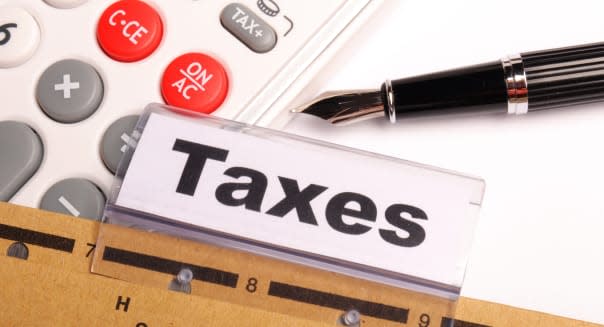Don't Have Your Tax Refund Yet? It's Time to Take Action

For many Americans, the period leading up to April 15 is the most stressful part of income tax season. It can include worries about improperly claiming deductions, how life changes will impact the amount you owe, and anxieties about the possibility of getting audited. Then you submit your return before time runs out, breathe a sigh of relief, and assume that the stress is over.
But what if you've done everything right, and that refund never arrives?
If months have passed with no word (good or bad) from the Internal Revenue Service, here's what you need to know.
Was Your Return Filed Properly?
It may sound obvious, but a miscommunication with your accountant or an error with an online filing service may have kept your return from being sent to the IRS. Before worrying about a missing refund, make sure your return was filed properly.
The agency's online tool and mobile app allow taxpayers to confirm their return was received. People who file online can check their status within 24 hours of filing. Those who sent a hard copy by snail mail can check four weeks after sending their return to the IRS.
When to Worry
"Most refunds are issued within 21 days after your tax return is processed and approved," says Lisa Greene-Lewis, lead certified public accountant at TurboTax. "If you e-filed and you checked IRS Where's My Refund, and it shows your refund has been issued, you can start having the IRS research the status of your refund after 21 days for e-filed tax returns and six weeks for mailed tax returns." The TurboTax blog offers a handy Where's My Refund post that shows the breakdown.
Note that 21 days is an average; returns take longer to process if they are complicated, have errors or lack information. A late refund payment doesn't necessarily mean the refund's been stolen or that you're going to be audited. Whether you've filed with an online tax preparer, hired an accountant, or did it yourself, once the return is filed, the IRS is your main contact.
If the Check Is Missing
If the IRS shows the refund has been sent, the refund check may have been stolen. If you suspect your refund check has been stolen, report it to the IRS immediately. Get a free copy of your credit report to ensure the theft hasn't also resulted in identity fraud. Ask the IRS to issue you a six-digit PIN for next year's filing and consider having any refunds direct-deposited rather than mailed.
Also consider freezing your credit report to ensure others can't open credit accounts in your name. The fees for voluntarily freezing your credit reports vary by state, but all states permit victims of identity theft to request a freeze with no charge, and other states have a nominal fee for those who haven't been the victims of identity theft but want an extra layer of protection.
The IRS Identity Protection Unit works with taxpayers who have experienced identity theft or are at risk for identity theft because documents with their address, Social Security number and other personal information have been compromised.
As with all breaches of identity, victims should contact the Federal Trade Commission, file a report with your local police and contact the fraud departments of the major credit bureaus, Equifax, Experian and TransUnion.
Avoid Additional Scams
This spring, more than $1 million was illegally obtained from taxpayers in a phone scam from people pretending to represent the IRS. Victims were told they owed taxes and must pay with a debit card or wire transfer. The IRS doesn't call people about their tax returns and says anyone who receives and email or a call should not respond but instead go to IRS.govfor more information.

